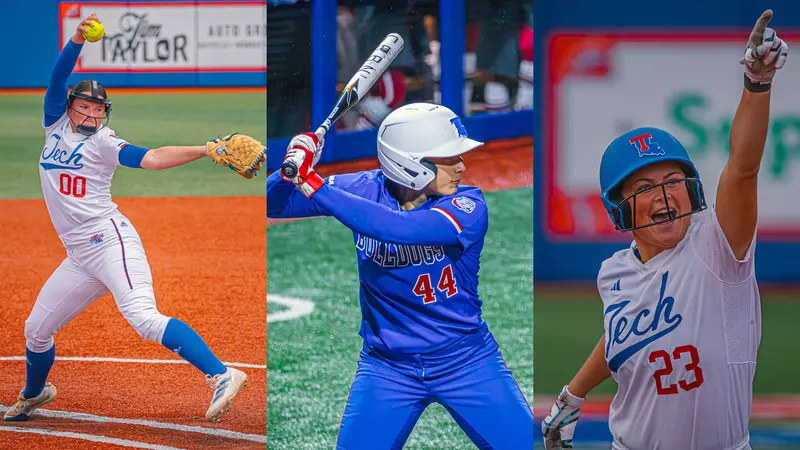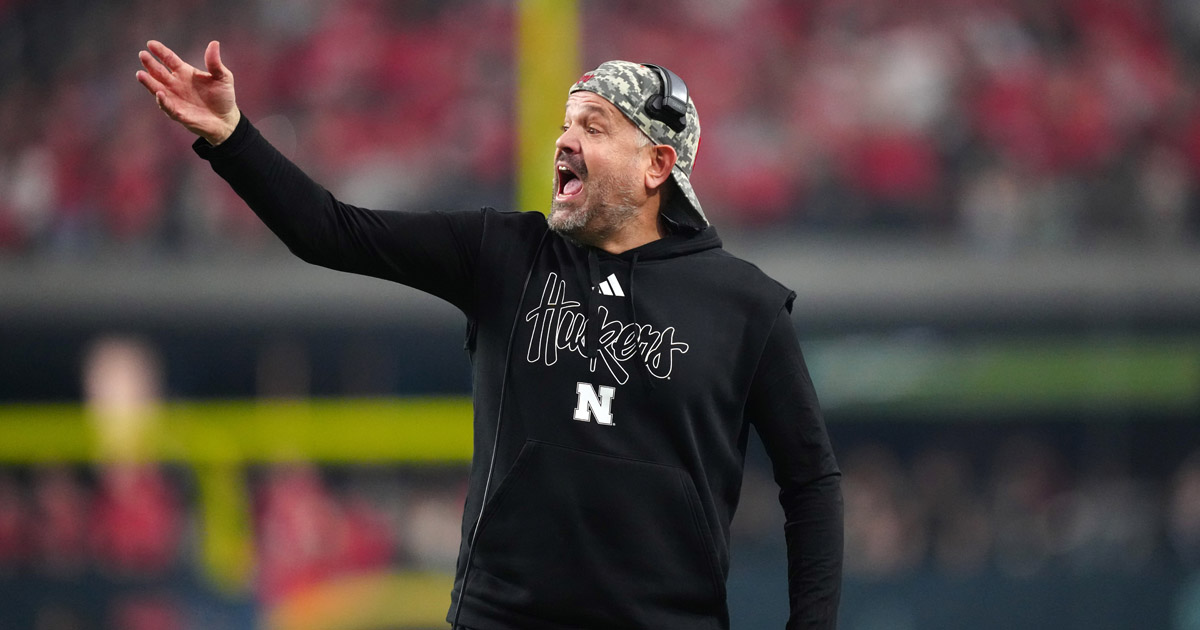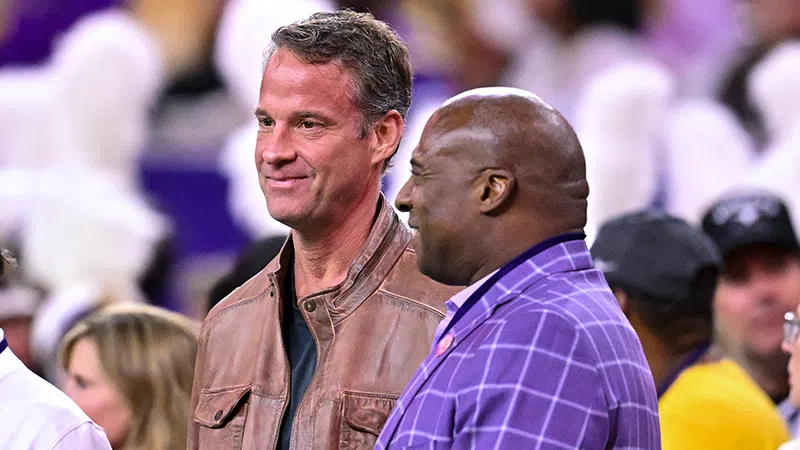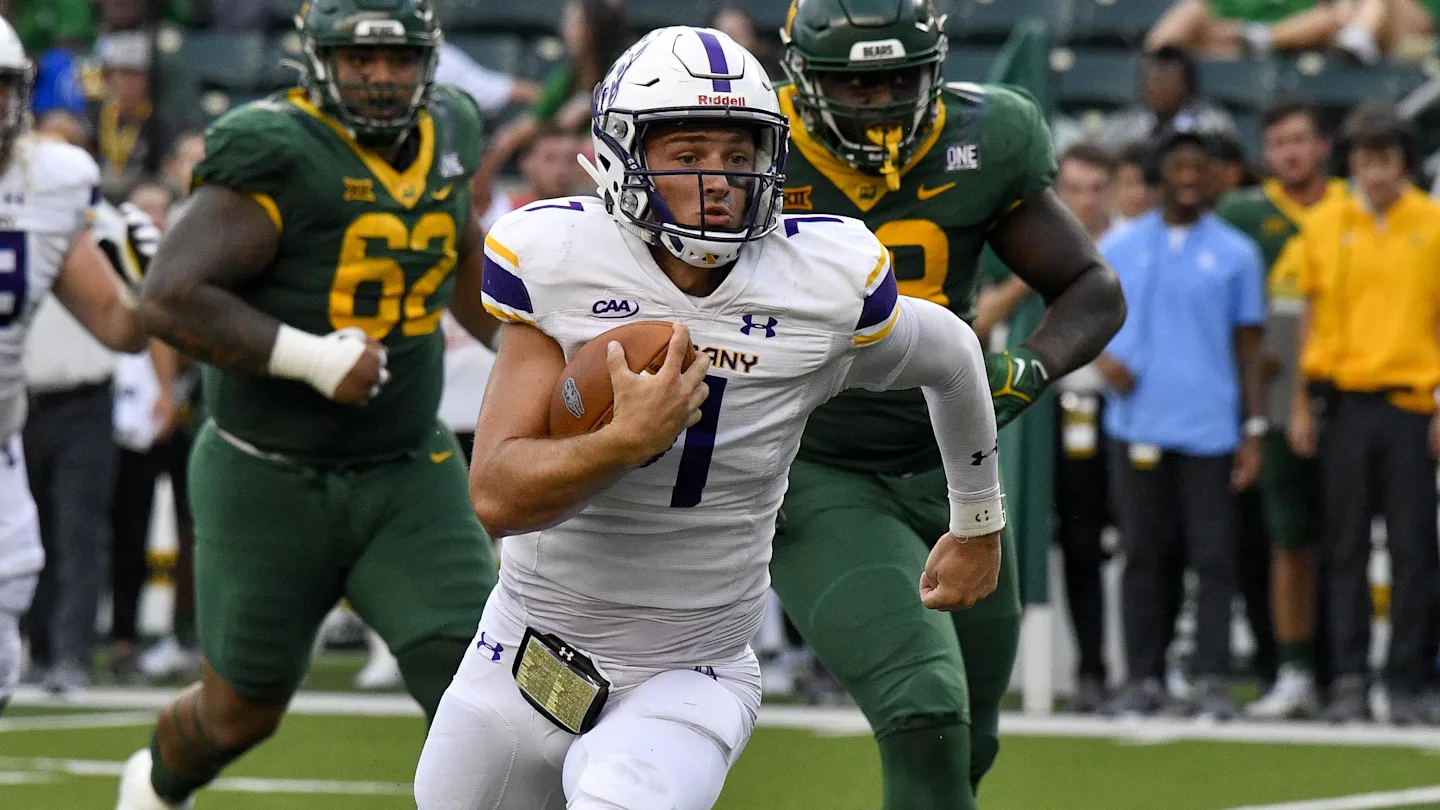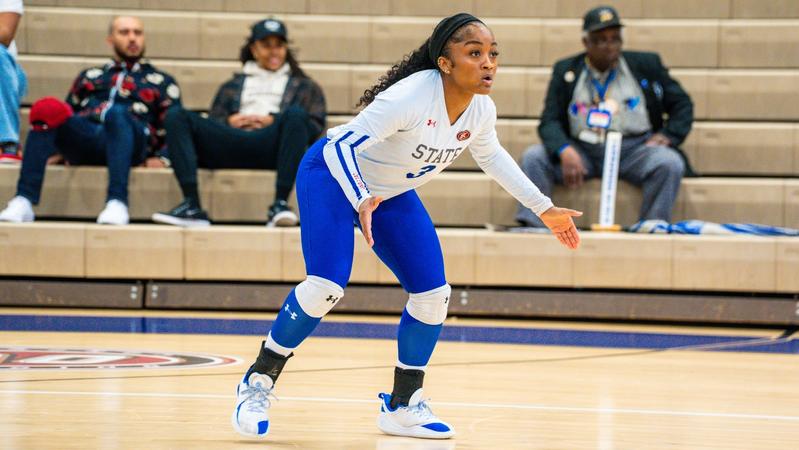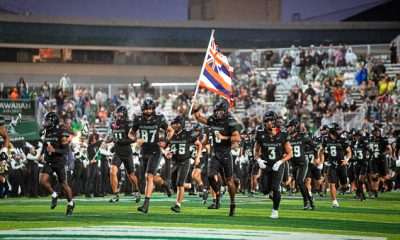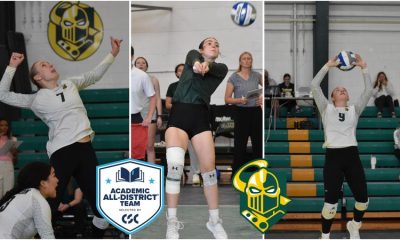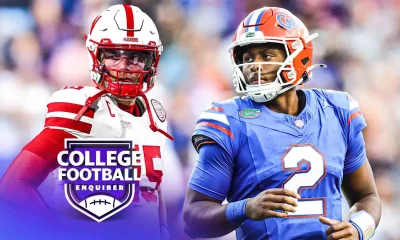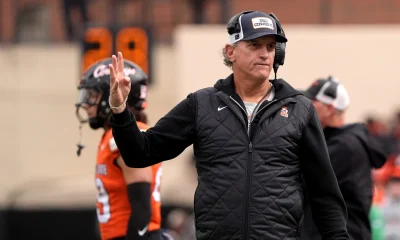
The Price: What It Takes to Win in College Football’s Era of Chaos was released in August of 2024. It is written by Armen Keteyian and John Talty. This book is a tell all and deep inside look at this new era of college football that covers NIL, the transfer portal, NCAA and recruiting scandals. In addition, heated conflicts between coaches, and all of the above.

COVID-19 pretty much started the beginning of the new era of college football. During that time, was when NIL started to become a thing in the state of California and was heavily discussed nationally. Also, the transfer portal started to rise rapidly.
Clemson Tigers head coach Dabo Swinney mentions, “There’s no rules, no guidance, no nothing. It’s out of control. It is not sustainable. It’s an absolute mess and a train wreck, and the kids are going to be the ones who suffer in the end.”
Coaches weren’t the only ones feeling the effects of this new era. One high-level crisis management consultant who has a lot of connections and clients in college football mentioned, “The unhappiness and dissatisfaction level are off the charts. I’m going to project eighty percent of my presidential clients, commissioner clients, AD clients, and my coaches are miserable.”
Coach Nick Saban
On May 18, 2022, Alabama head coach and all-time great Nick Saban started a war when he claimed Texas A&M bought every player on their team. He even double downed on the claim, saying he did not buy one player. But, he also continued to say he might have to in the future because more and more people are doing it.
Saban previously lobbied for Stephen A Smith and Paul Finebaum to call out Texas A&M as a high ranking Alabama source said “using NIL as a recruiting inducement is a clear violation of NCAA rules on NIL.” However, allegedly Saban’s claim is a little hypocritical as he was doing the same thing when he coached at LSU years before NIL was even legal.
Former Tigers running back Elice Parker, was paid by Saban. Saban also mentioned, if anybody cheats you’re fired, but can’t control what the boosters do.
Once Saban got to Alabama and NIL started up, he and the Crimson Tide did not handle NIL well. The program and staffers acknowledged when Saban ever left or retired, they would be screwed. While Saban was head coach, in 2022, Saban refused to pay a marquee transfer $1 million dollars. A sports agent mentioned, if NIL did not exist, they would’ve had three more five stars in their recruiting class. Saban struggled bringing in guys cause of NIL. As well as, players inability to sit and wait for their opportunity like in years past during the dynasty.
He was angry with Kiffin that he’s never had a coach he couldn’t control or get to do his way. Even though the two had a lot of success together, Saban did not like the fact that Kiffin was egotistical.
Coach Jim Harbaugh, “The Michigan Man”
The Michigan man is none other than former Michigan quarterback and head coach Jim Harbaugh. Harbaugh’s infamous “nobody” speech started originally from his dad making him and his brother John walk to school while dribbling a basketball. Both brothers were very competitive at every sport they played which helped them get to where they were today.
Harbaugh got himself into some trouble at Michigan. As a result, he debated leaving and going back to the NFL taking a job as head coach of the Denver Broncos. However, he declined due to his loyalty to college football and for seniors JJ McCarthy, Blake Corum, Zak Zinter, and Kris Jenkins.
Harbaugh while at Michigan, wanted to take advantage of one of the better states in the country in top high school talent in New Jersey. He hired Chris Partridge to help him recruit some top New Jersey. It worked well as they landed some future NFL players such as Jabrill Peppers and Rashan Gary.
Harbaugh had a very interesting path to coaching as he started off as an assistant coach at Western Kentucky for eight years. Then, he became a quarterbacks coach in the NFL for the Oakland Raiders. Then, he got to be a head coach for the first time back in college for the San Diego Toreros. After, he earned his chance to be a head coach at the NFL with the San Francisco 49ers. With the 49ers, he made it to the Super Bowl. But eventually, he ended up at his alma mater.
The Michigan Man II
At one point, Harbaugh was struggling early in Ann Arbor. He was failing to compete for national championships and struggled against rival Ohio State. He thought, he was going to get fired. In efforts to save his job, he got a younger staff, landed JJ McCarthy. As a result of those things, he was able to win four straight against their arch rival.
In terms of NIL and recruiting, 2021 was their best season in the NIL era. They raised between $15 and $25 million dollars.
Investigators would after being unsuccessful to find out the truth, would threaten people with their jobs to get them to tell the truth or remember the situation. If not, they could lose their job and/or be suspended. After six months of investigating, Harbaugh was suspended four games.
Another scandal that happened in Ann Arbor, Michigan was the Connor Stallions situation. Stallions would pay 65 total people including his friends to use their phones and film other teams. He also, dressed up as a staffer with a visiting pass. Stallions later resigned and told people coach Harbaugh had nothing to do with it. Harbaugh was suspended three games but they didn’t find any evidence for him being involved, just was guilty by association.
Despite all of the scandals and suspensions, as well as flirting with the NFL, Harbaugh led the Wolverines to a national championship. Harbaugh after feeling the NCAA was against him and with investigations still going, he finally took a NFL head coaching job with the Los Angeles Chargers.
EA Lawsuit
Former student-athlete Ray Dennison was the reason the term “student-athlete” became a thing. After his death, students were only compensated for books, tuition, and housing.
Sonny Vaccaro co-founded the Dapper Dan Roundball Classic which was the first high school all star game. From there, he worked with Nike and got sponsorships with coaches. As well as 21-year-old Michael Jordan to join. This was one of the first public sponsorships for a collegiate athlete. After being fired from Nike, Vaccaro landed Kobe Bryant a five million dollar deal with Adidas in high school.
Ed O’Bannon, a former collegiate basketball player at UCLA, was not paid for his name, image, or likeness in the NCAA March Madness 09 video game. As a result, O’Bannon and others sued the NCAA and EA Sports. NCAA was leaving over $8 million dollars a year by not allowing EA to license NIL. “The names and likeness are rigged into the games now by illegal means”
End of EA video games
The NCAA and EA eventually lost the lawsuit. The NCAA paid out 20 million dollars to former division one football and basketball players during the video games in 2014. EA paid out $40 million dollars to athletes and shut down their collegiate games in 2014. I was not until July 2024, where a college football video game came back. Players were compensated as well as a copy of the game.
Schools now paid “full cost of attendance” in addition to full scholarships. Otherwise meaning, student-athletes had their tuition, room and board, textbooks, and meal plans paid for.
California Senate Bill 206 “Fair pay to play act” college athletes legalize NIL watered down version in 2019 signed but wouldn’t be in effect until 2023. Even though NIL didn’t become a thing nationally until 2021, California was the first state to create some sort of NIL laws in 2019. But as a result, the NCAA threatened to ban California schools from NCAA sporting events.
Florida joined California with a similar law but put it into effect in 2021. NIL on July 1, 2021 almost didn’t happen as the NCAA nearly let states operate their own way. 27 states had their own rules which offered unfair advantages.
Saban’s Mentors
Kirby Smart is the Georgia Bulldogs head coach and arguably the best active head coach in college football. But before being the powerhouse he is now, he started as an assistant learning from the best in Saban. Many have been successful on their own after learning from and leaving Saban, but undoubtedly, Smart is the most successful.
Smart finally got to beat his former mentor in a national championship. Originally, Saban was happy for him. But then, he started making up excuses and mentioning he didn’t have his best roster due to injuries.
Saban would often demonstrate he could be rather difficult to work with at times. He would be laser focused on winning even if it meant overworking his staff or ignoring life changing events such as 9/11. Saban would even call his staff multiple times on Christmas and when his staff members or himself were on vacation. He was so competitive, he even tried to block defensive back Maurice Smith from transferring to Georgia before the SEC got involved.
Jimbo Fisher’s $76 million dollar buyout from Texas A&M in November 2023 was the largest in sports history. Fisher during his time at FSU did not see eye to eye with the athletic director or the president of the school (John Thrasher). He’d constantly complain to Thrasher and go into his office asking for helicopters, better referees, and better facilities.
Fisher was always jealous of Saban and wanted to claim his successes including the RPO’s and a more balanced offensive approach. But, Saban didn’t even utilize until Lane Kiffin was with him and after. On Fisher’s best A&M recruiting class, he was accused of spending between $25 and $30 million dollars.
Calling Collectives
The TCA Group founded (The Collective Association) which represents and defends collectives. Also, pushes back on the narrative they were at fault for college football’s problems. They are there to show and demonstrate why collectives are good for college sports and how they are beneficial to recruiting. The NCAA and college administrators didn’t realize when introducing NIL the power boosters had. Their powerful because of their impact in landing recruits.
When the time was right, job offers would be even made to the parents of a top recruit. They would receive a paycheck, health benefits, and a pension even if they weren’t qualified for the role. Schools would go to great lengths, even unfair or illegal ways, just to land top talent and be competitive in football. Cheating has always happened in college football. Some examples of this are, 1987 SMU, and Alabama in 2002 paying players. Also, Ole Miss in 1995 got a TV ban and 4 years of probation for boosters offering cars and cash to recruits. In the late 50’s people would put money in players helmets as compensation. Even in college basketball, schools like North Carolina were in trouble for creating fake classes.
In 2021, the Florida Gators created the first NIL Collective. At the time, it only featured autographs and Q&A’s for fans over Zoom. Tennessee and Texas A&M quickly followed.
Calling Collectives II
John Ruiz, a Coral Gables based lawyer, got Nijel Pack to transfer to the U for $800,000 for two years. Many starting players at Miami grew frustrated with football head coach Mario Cristobal and staff about making way less than people lower on the depth chart.
In this new era of college football, if you weren’t spending millions of dollars on your roster and facilities, you were already behind. Top contenders are supposed to spend at least $7 million to have a natty contender roster. In the SEC, teams would generally spend $5 mil for bowl eligible, $7 or $8 million for 7 or 8 wins, and $10 or more million to contend for a title.
NIL matters so much nowadays in this era, that players and coaches will leave strictly for a larger check. Ole Miss head coach Lane Kiffin nearly left for Auburn cause of a larger NIL budget, until Kiffin got a $10 million dollar raise. His star running back Quinshon Judkins nearly entered the transfer portal after his freshman year. But eventually, was convinced to stay after agreeing to a six-figure deal. But that was not good enough, as he transferred to Ohio State just a year later. His transfer earned seven figures to truly show, money talks.
Fighting For Opportunity
Washington Huskies head coach Jedd Fisch definitely has one of the more unique and interesting paths to football and where he is now. He grew up in New Jersey, playing tennis. He became infatuated with football by his mom’s boyfriend who was a high school football coach.
Fisch then attended the University of Florida. His roommate was none other than future Executive Vice President and General Manager of the Philadelphia Eagles Howie Roseman. Fisch, a young and hungry college student would keep showing up to Gators head coach Steve Spurrier’s office. He would also leave notes until he got an opportunity.
He also went to some coaching greats in Sean McVay and Bill Belichick for advice, before taking the head coaching job at the University of Arizona. Fisch focused on upgrading facilities at Arizona after $14 million dollars upgraded facility. Some of the upgrades include a pool table, new offices and meeting rooms for coaches, expanded weight room, players lounge, and barbershop. However, even with all of those nice upgrades, he had to compete with the Wildcats basketball team for donor money.
Fighting for Opportunity II
He was able to earn some NIL money in 2022, Arizona had 22nd best recruiting class. That also put them first in the PAC-12. Impressively, he did it without spending a dollar on NIL but rather promising the opportunities to podcast and sell your jersey. That class landed stars such as Jacob Manu, Noah Fifita, and Tetairoa McMillan.
After a 5-7 season, Fisch was able to get every scholarship player $18,000 and the opportunity to earn another $6,000 and a laptop for good grades. Every walk-on player also got paid, as they earned $12,500. However, he still dealt with losses as he lost All-PAC-12 wide receiver Dorian Singer to conference rival USC for $250,000.
Fisch would go see McMillan’s family in Hawaii often to let him know important he was to the team and to essentially re-recruit him. He wanted to keep him happy and remind him of his important role so he wouldn’t transfer for larger amounts of money. The pitch worked as he kept his star player. Post spring ball in 2023, 6,350 football players entered the transfer portal.
Maryland tried to operate their own “Moneyball” system in efforts to compete with some of the bigger programs. Before revenue sharing, the Big Ten powerhouses got to spend between $10 and $15 million. Meanwhile, the lower end schools spent around $2.5 million. Maryland was closer to the lower end, hence the Macy’s comparison.
Paying For Athletes + Recruiting System
One of the first ways athletes received compensation in the NIL era was online through MyNILpay.com. It was a Venmo like website where people could directly pay athletes. Over 500,000 athletes ranging from D1 to DIII were on the website.
Locksley said Maryland is like Macy’s cause it’s stuck in no man’s land. They’d lose elite talent to Bama, LSU, and Arkansas and also lose nine depth players to Charlotte.
Taulia Tagovailoa and his dad kept constantly asking for more NIL money. If not he’d contemplate transferring. It was rumored he would transfer to Miami to be closer to his older brother Tua. Him and another teammate would only play in a bowl game if they got $500k.
NIL Resources
On3 was founded by Shannon Terry and took over Rivals in 2000. On3 is a website database that allows anybody to see anything ranging from NIL valuations and contracts to high school and transfer portal recruiting. It was later acquired by Yahoo in 2008. Two years later he founded 247Sports and then he sold to CBS Sports in 2016. Then five years later he started On3.
In the summer of 2023, five-stars cost $165,000 to $350,000. Meanwhile, it would cost $375,000 for a top-10 high school QB.
Julian Sayin’s parents stayed away from the NIL Market including agents and financial advisors. However, in the summer of his junior year, he signed with Athletes First which is the largest NFL agency. They represent guys like Aaron Rodgers and Dak Prescott.
Early 2000s, most SEC schools including Alabama tried to buy top defensive linemen out of Memphis and were in trouble.
Former AAC commissioner, Mike Aresco mentioned he doesn’t understand why it’s called NIL when it’s really pay to play and pay to recruit. Saban landed a freshman NIL deal where every player earned $25,000.
NIL Impacting People’s Lives
88.5% of NIL activities start on social media. Livvy Dunne, a former gymnast at LSU had a NIL value of $3.4 million and would get $500k from On3 just for posting on social. However, there were some downsides as Dunne mentions having security and recommends keeping your life private. She also mentions on the documentary “The Money Game: LSU” that while in college, she attended class online due to safety and security reasons.
Florida State was fined $1.7 million, disassociate from a collective, and their OC was suspended three games for the first ever NIL violation and lawsuit.
Conference Realignment + TV Rights
Maryland moved from ACC to the BIG 10 strictly cause of money and left the rivalries with UNC and Duke for Iowa and Purdue. Washington and Oregon each accepted a $30 million dollar offer to join USC and UCLA in going to the Big Ten. Since then, at least 11 schools left to join the Big 12, Big Ten, or ACC. The PAC 12 as many knew was gone.
TV rights (7 years more than $8 billion from ESPN, CBS, and NBC for the Big 10)
⁃ 10 years, 3 billion from ESPN/Disney just for SEC’s game of the week
University of Arizona President Bobby Robbins wanted to compete against the SEC by proposing a mega conference of the PAC-12 merging with the ACC, and Big 12. USC was against other schools like Baylor and TCU joining the PAC-12. Colorado joining the Big 12 cost the PAC-12 deals with ESPN, FOX NBC CBS. Oregon and Washington join the Big 10 and Washington did because of disagreeing with Apple deal about streaming only (mainly head coach Kalen DeBoer).
Cal and Stanford went to the ACC while, Arizona, Arizona State, and Utah were heavily pursued by the Big 12 before joining. Oliver Luck convinced Oregon State and Washington State to not leave the PAC-12 an to try and save it due to more money directly going to them and its rich history. Big Ten didn’t take Cal or Stanford cause all they care about is tv ratings and not academics.
Agent + Top QB? Dynamic Duo? Utter Disaster?
20 year old SMU student Jackson Zager is also the NIL sports agent for Arizona State quarterback Jaden Rashada. Rashada was offered a 4 year, $13.85 million dollar contract to play for the Florida Gators. He would’ve been making more than NFL QB Brock Purdy. The deal went away because Gator Guard and Gator Collective couldn’t raise the money.
Rusty Hardin, a famous Houston area litigator who works with Zager is prepared to sue Billy Napier for the largest lawsuit since NIL became a thing for “fraudulently induces Jaden into signing national letter of intent.” Zager and Rashada met at IMG Academy despite Zager being two years older and Rashada only going there for a month. As a college freshman, Zager started JTM Sports with former teammate Tommy Thomson and landed their first client, Illinois State quarterback Zack Annexstad.
Rashada’s Downfall?
Since Rashada lives in California, he could earn NIL in high school and he reached out to Zager to team up. Eddie Rojas, a former Gators pitcher launched the first NIL collective. Although, Rashada chose Miami’s $9.5 million over Florida’s 10 million and committed to U Miami before crying and calling Zager once the numbers got released. After a renegotiated contract, Rashada flipped his commitment to Florida for $13 million with $8 million coming from Gator Guard and a $500,000 signing bonus.
Florida terminated the deal a day after the $500,000 dollar wire never went through. Napier told Rashada to sign the letter of intent and even bribed him with a million dollars to do which is illegal. Rashada was upset when he wasn’t being paid what he was and wanted to sue. His agent said stick at Florida despite being screwed and Rashada said no an asked for his release from Florida which was granted January 17th. Rashada only had two options, his dads Alma mater in Arizona state or national championship runner-up TCU and he chose Arizona State with zero NIL money.
Now, fast forward to present time, and Rashada has played for Arizona State, Georgia, and now Sacramento State.
Overall, if you are a college football fan and are opinionated one way or the other about sports business and NIL, it is definitely worth the read. There are also tons of other information the book goes into detail about that was fascinating.
Latest Article
To check out my latest article, click here.
*******************************************************


